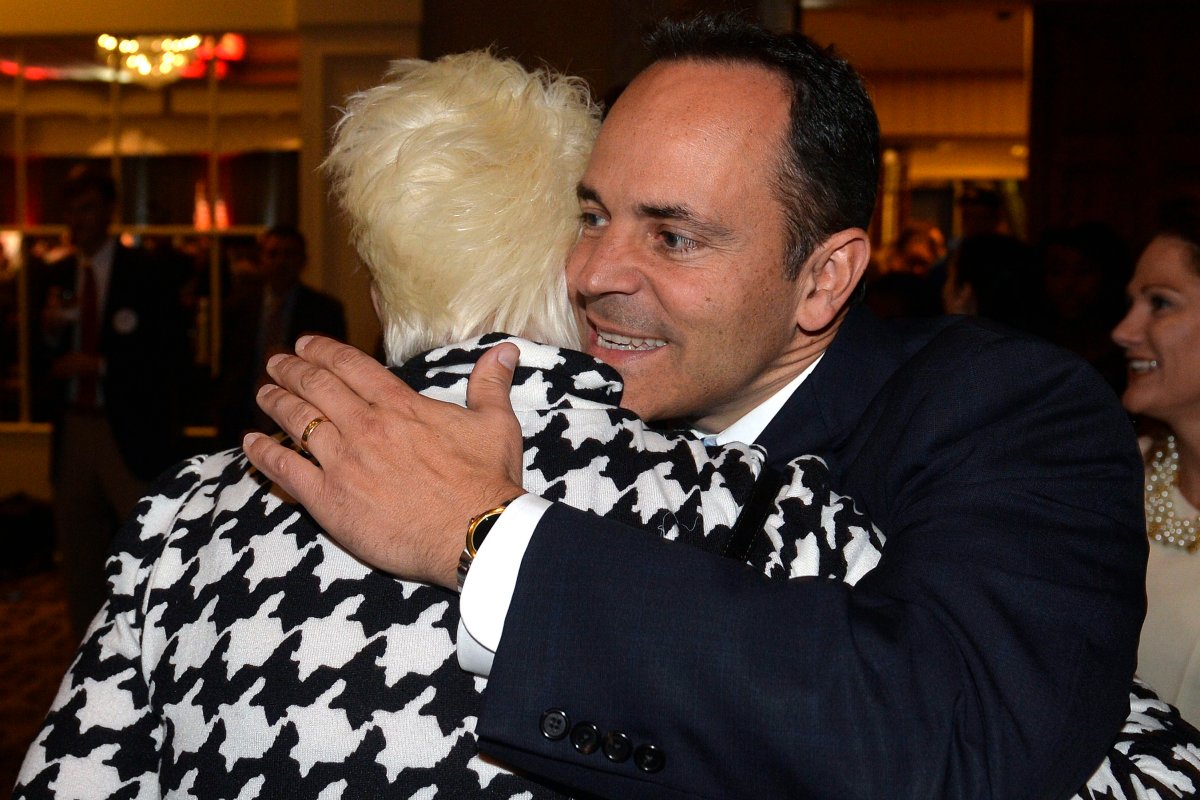Kentucky voters on Tuesday elected just the second Republican in four decades to hold the governor’s office, in a race that hinged largely on President Barack Obama’s signature health care reform legislation.

The result was a potentially troubling sign for Democrats ahead of next year’s presidential election and represented a big win for Republicans as they continue to consolidate political power across the South. Democrats also were thumped in Virginia, where they made a big push to win a majority in one chamber of the state legislature.
The gubernatorial campaign in Kentucky was the highest-profile race in Tuesday’s off-year elections. The only other gubernatorial contest was in Mississippi, where Republican Gov. Phil Bryant easily won re-election over two candidates who ran low-budget campaigns.
Elsewhere, Houston voters defeated a closely watched ordinance that would have established nondiscrimination protections for gay and transgender people in the city, and Ohio voters rejected an initiative that sought to legalize the recreational and medicinal use of marijuana.
In Kentucky, Republican businessman Matt Bevin had waged a campaign to scale back the state’s Medicaid expansion that was made possible under Obama’s federal health care overhaul. Some 400,000 lower-income people in Kentucky who gained health coverage under the Medicaid expansion could be affected.
Bevin ran as an outsider, emphasizing his Christian faith along with his support for Kim Davis, the Rowan County clerk jailed for refusing to issue marriage licenses to same-sex couples.
His Democratic opponent, two-term Attorney General Jack Conway, embraced Obama’s health care reforms, saying hundreds of thousands of Kentucky residents could lose access to taxpayer-funded insurance if Bevin won.
Around the country, several high-profile ballot initiatives tested voter preferences on school funding, marijuana, gay and lesbian rights and the sharing economy. Despite the relatively low number of races, the results could be an important bellwether of sentiment ahead of next year’s presidential elections.

Get breaking National news
READ MORE: Cruz hopes to build momentum from Republican debate
In Virginia, a swing state, Democrats failed in an expensive bid to take control of the state Senate and empower Democratic Gov. Terry McAuliffe in negotiations with Republicans who control the state House. With the losses in Virginia and Kentucky, it was a rough Election Day for Democrats.
In Houston, the fourth-largest U.S. city, efforts to secure non-discrimination protections for gay and transgender people failed by a 2-to-1 margin. Now that same-sex marriage is legal, such laws have become a priority for gay, lesbian, bisexual and transgender groups.
Opponents, including a coalition of conservative pastors, said the measure would have infringed on their religious beliefs regarding homosexuality. They focused their campaign on highlighting one part of the ordinance related to the use of public bathrooms by transgender men and women that opponents alleged would open the door to sexual predators to go into women’s restrooms.
Texas Gov. Greg Abbott praised the voters who defeated the measure, saying they “showed values still matter.”
Democratic Houston Mayor Annise Parker, who is gay, blamed the rejection by voters on opponents’ “bathroom ordinance” campaign, which she called “fear mongering” and part of an effort to demonize the LGBT community.
In the race for Houston’s next mayor, veteran state Rep. Sylvester Turner and Bill King, a former mayor of a Houston suburb, will meet in a Dec. 12 runoff. It was one of more than 300 mayoral races happening across the country. In Philadelphia, former longtime Councilman Jim Kenney was elected mayor on a promise to fight poverty and push for universal pre-kindergarten education.
The governor’s race in Mississippi was overshadowed by a fight over a constitutional amendment that would allow people to sue the state to increase funding for public schools. Voters defeated the proposed amendment.
The Salt Lake City mayoral race featured a tight race between two-term incumbent Ralph Becker, one of President Barack Obama’s appointees on a climate change task force, and former state lawmaker Jackie Biskupski. The race remained too close to call, as thousands of mail-in ballots that were dropped off at polling places Tuesday remain to be counted. If Biskupski wins, she will be the city’s first openly gay mayor.
San Francisco voters were deciding a citizen-backed initiative to restrict the operations of Airbnb, the room-rental site, and a $310 million bond package for affordable housing.
In Washington state, voters overwhelmingly approved a measure to add state penalties for anyone who imports certain animal products for commercial purposes, such as elephant ivory or rhino horns.
And Colorado voters decided to let the state keep $66 million in tax revenue generated from the sale of recreational marijuana. An existing state law requires excess tax revenue to be returned to taxpayers, but on Tuesday voters agreed to make an exception with the marijuana revenue and direct it instead toward public education and drug-prevention programs.







Comments